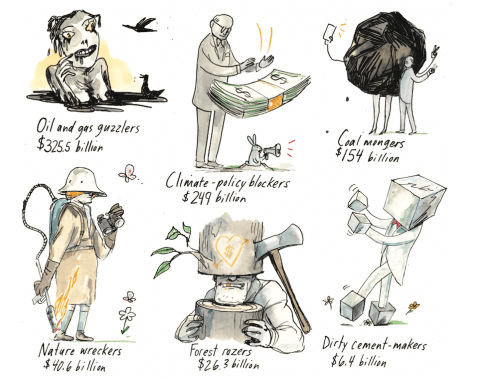If there’s one company that’s been the 21st century’s poster child for corporate citizenship, it’s Anglo-Dutch giant Unilever, producer of familiar consumer brands such as Hellmann’s, Dove, Breyers and Red Rose Tea. Under former CEO Paul Polman, the Unilever corporate strategy expanded into greener brand categories and embraced a “sustainable living plan” that included climate action, eliminating food waste, and promoting human rights.
Polman took heat for making social purpose as important as profit. But in his nine years as CEO, the company’s stock price nearly tripled, so when he stepped down in 2019, he left as a visionary. He also got a say in his successor, Alan Jope, a Unilever lifer who has run the company’s operations in China, Russia and India and who shares Polman’s social concerns.
In January, Jope finally stepped out of Polman’s shadow by revealing what the next phase of social responsibility looks like as Unilever announced a host of bold commitments aimed at building a more equitable and inclusive society. Among its initiatives:
• ensuring that everyone who directly provides goods and services to Unilever earns “at least a living wage or income” by 2030;
• spending US$3 billion annually, by 2025, with suppliers owned and managed by people from under-represented groups;
• helping five million small and medium-sized businesses grow through access to skills, finance and technology, by 2025; and
• training 10 million young people to prepare them for job opportunities, by 2030.
In keeping with these values, Unilever also promised to ensure that its employees are trained so they have a “future-fit skillset,” to help them access better employment options. As the world’s second-largest advertiser, Unilever will also boost the diversity of people involved in production of its ads, “both on-screen and behind the camera.”
“Without a healthy society, there cannot be a healthy business,” Jope said in a statement. “Decisive and collective action is needed to build a society that helps to improve livelihoods, embraces diversity, nurtures talent and offers opportunities for everyone.”
Unilever said it already pays its employees at least a living wage, but now “we want to secure the same for more people beyond our workforce, specifically focusing on the most vulnerable workers in manufacturing and agriculture. We’ll work with our suppliers, other businesses, governments and NGOs to create system-wide change and encourage the global adoption of living-wage practices.”
More than 630 million workers worldwide did not earn enough to lift themselves and their families out of poverty in 2019. The company believes a living wage should cover food, housing, education, healthcare, transportation, clothing, and unexpected emergencies.
With a global platform, 65,000 direct suppliers, and revenues of US$78 billion a year, Unilever has the potential to lift millions out of poverty. Will other businesses follow its example? After all, it’s only been two years since McDonald’s in the U.S. announced it would no longer actively oppose local initiatives to increase the minimum wage – let alone a living wage. In 2013, H&M committed to paying its 850,000 supply chain workers a living wage by 2018; that pledge has yet to be met. And all of Canada watched last summer as national grocery firms – doing boffo business during the pandemic – scrapped the extra $2-an-hour “hero pay” granted to frontline retail workers in the first months of lockdown.
We look forward to a healthy debate.
Related reading: Why Walmart’s minimum wage increase is actually in shareholder interests







